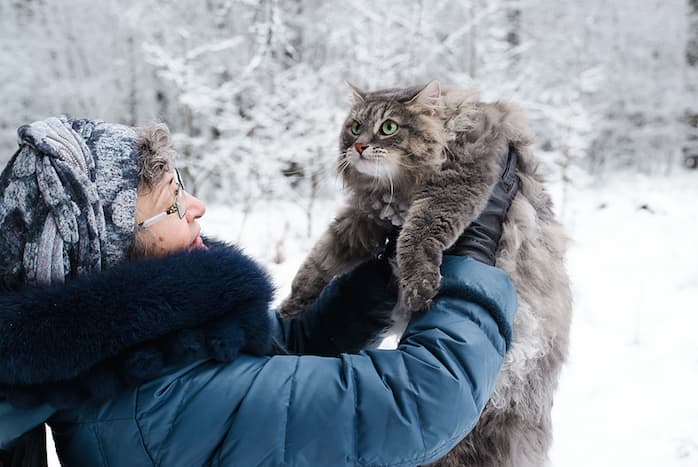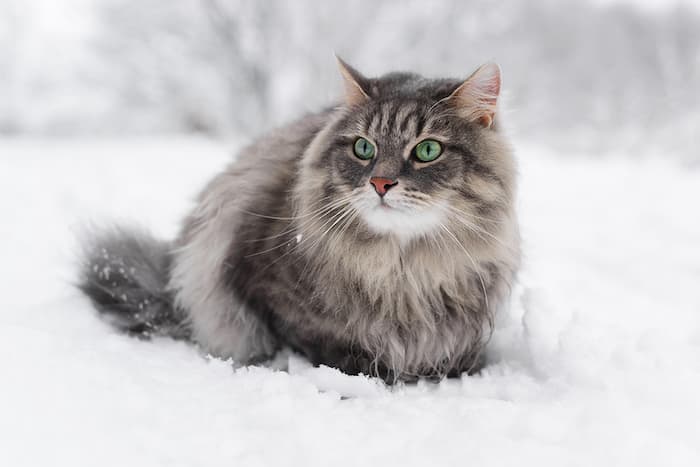The Siberian is a quiet breed that loves its family and other animals. Most Siberians even get along well with children and dogs. Siberians are fiercely loyal and fearless. The breed is wary of people they don’t know, but once they make friends, it’s for life. Siberians are calm and quiet but enjoy playing and are curious about their surroundings.
Siberians have more of their share of curiosity than other cat breeds and are unusually fond of playing in the water. Owners should take care of pools and nearby ponds or streams. One of the fascinating traits of a Siberian is that they tend to show more empathy toward other cats than most felines. Siberians aren’t aggressive but should be treated with respect.
How Much Is a Siberian Forest Cat?
A limited or full registration usually prices Siberians. Siberian kittens with a limited registration that will be family pets run between $500 and $900. Fully registered Siberians for breeding must have a proven lineage and origin. Common pedigrees cost between $800 and $1500. Excellent pedigrees cost between $1500 and $4000.
How Much Attention Does A Siberian Forest Cat Need?
Siberians have very long coats and require regular brushing at least two to three times each week. The chest and abdominal area require more care. Cats that get regular grooming are less likely to get knots in their coat and hairballs. Siberians have more oil in their coats than other breeds and don’t require frequent bathing. Veterinarians recommend that dry bathing be done by a groomer.
What Is The Diet Of The Breed?
The diet a Siberian is fed can have an impact on their health and longevity. Owners may feed their cat kibble or wet food and should follow their veterinarian’s recommendations. The vet may recommend a prescription diet for a cat that has health issues like gastrointestinal problems. Some vets recommend feeding your Siberian raw meat to give the cat more energy, improve digestion, and keep the coat healthy and shiny. However, pregnant cats should only be fed cooked meat.
Newborn kittens should get mother’s milk. Kittens should eat food formulated for kittens for healthy growth. Adult cats should be fed a balanced diet with proper amounts of protein, fats, minerals, vitamins, and nutrients. Senior cats need extra vitamins and may be fed a diet formulated for older cats.
What Are The Most Common Health Issues Of The Breed?
Due to Siberian Forest Cats’ origins, they don’t suffer from congenital diseases as frequently as other feline breeds. However, they are more prone to heart disease than some other breeds. Siberians may develop hereditary forms of cancer, urinary crystals, kidney disease, and gum disease. Frequent wellness exams with your veterinarian are recommended.
Cat owners should always follow the recommendations of their veterinarian for vaccines and any diagnostics they consider necessary. Teeth and gums and mucus membranes should be examined on a regular basis. Claws should be trimmed, so they don’t get overgrown.
More Cat Breeds


